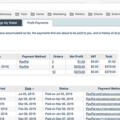Equifax victims: You’re not getting your $125
Did you think, for real, that you were getting the $125 Equifax promised to pay for its failure to protect your private information? Update: you’re not.
Remember, the choice provided to more than 147 million victims as part of the company’s $700 million settlement in July was: A) sign up for free credit monitoring with the company that had already exposed data – with the requirement you provide additional information in the process, hoping this time it stays safe – or B) putting in a claim for $125.
Your payout now is down to $6 to $7, or even less, Ted Frank, director of litigation for Hamilton Lincoln, told CNBC. That’s after a federal judge on Dec. 19 awarded $77.5 million to the attorneys representing the class of consumers against Equifax.
It wasn’t looking good before that, though. Within two weeks of announcing the Equifax settlement, the Federal Trade Commission said that due to the “overwhelming” interest in the $125 instead of credit monitoring, people who applied for the cash “will be disappointed.” The settlement hadn’t set aside enough to cover everyone.
That prompted one Twitter user to comment, “It’s ironic because paying less than the full amount is exactly what Equifax tracks and punishes you for.”
In 2017, Equifax failed for months to patch a known security flaw that let hackers swipe about 147 million names and dates of birth, 145.5 million Social Security numbers and 209,000 payment card numbers and expiration dates. It was one of the largest data breaches in U.S. history, affecting about 60% of the U.S. adult population.
The FTC also said Equifax stored Social Security numbers and other sensitive data in plain text files, making them more vulnerable to criminals. As part of the deal, Equifax agreed to meet a set standard for security systems and protocols.
During a Congressional hearing last year, Rep. Katie Porter (D-CA) asked Equifax CEO Mark Begor if he would be willing to publicly disclose his Social Security number, birth date, and address – the same information exposed in the data breach. He declined.
“It’s sensitive information I like to protect, and consumers should protect,” Begor said.






